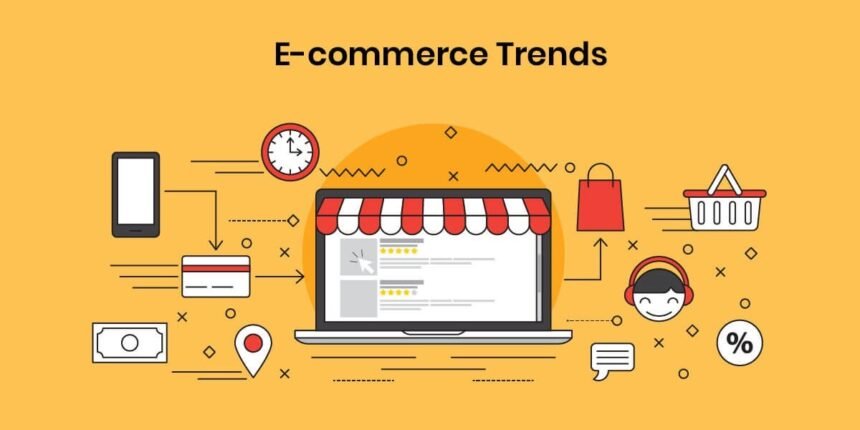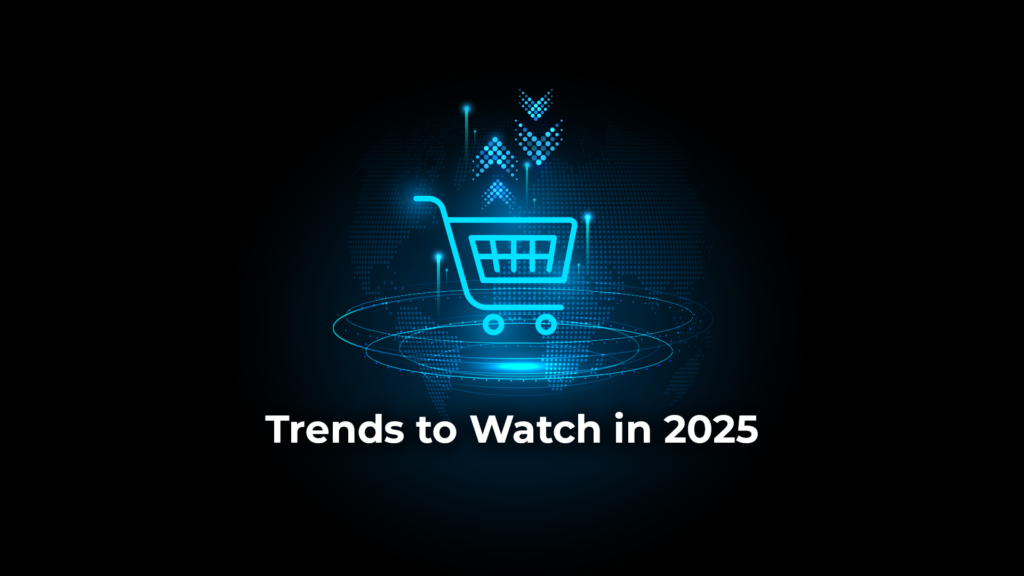E-commerce is evolving at a breakneck pace, revolutionizing how we shop and interact with brands. From AI-driven recommendations to the rise of social commerce, online shopping is becoming more intelligent, faster, and more immersive. But what does the future hold? Let’s dive into the key trends shaping the Future of E-Commerce.
1. The Rise of Artificial Intelligence and Machine Learning
AI is no longer a futuristic concept; it’s here, and it’s changing the e-commerce game. Personalized recommendations, chatbots, and smart search features are enhancing the shopping experience like never before. AI-driven tools analyze customer behavior to offer tailored suggestions, making online shopping more intuitive and efficient.
2. Augmented Reality (AR) and Virtual Reality (VR) for Immersive Shopping
Ever wished you could try on clothes or preview furniture in your home before buying? AR and VR are making that a reality. With AR-powered apps, shoppers can virtually place products in their space, reducing uncertainty and boosting confidence in online purchases. VR takes it a step further by offering fully immersive shopping experiences, making digital stores feel as engaging as physical ones.
3. The Dominance of Mobile Commerce (M-Commerce)
With smartphones becoming an extension of our lives, mobile commerce is skyrocketing. From one-click payments to mobile-first websites, businesses are optimizing their platforms for seamless mobile shopping. The convenience of shopping on the go, coupled with mobile payment innovations like digital wallets, is driving this trend forward.
4. Social Commerce: Shopping Through Social Media
Scrolling through Instagram or TikTok and stumbling upon a product you love? With integrated shopping features, you no longer need to leave the app to make a purchase. Social commerce is blending entertainment with shopping, making impulse buys easier than ever. Brands are leveraging influencers and interactive content to engage customers in a whole new way.
5. Voice Commerce: The Rise of Shopping with Smart Assistants
“Hey Alexa, order my favorite coffee.” Sounds convenient, right? Voice commerce is gaining traction as smart assistants like Alexa, Google Assistant, and Siri make online shopping hands-free. As voice recognition technology improves, expect more consumers to embrace voice commands for reordering essentials and discovering new products.
6. Subscription-Based E-Commerce Models
Subscription services aren’t just for Netflix anymore. From meal kits to beauty boxes, businesses are offering curated, recurring deliveries to keep customers engaged. This model provides convenience while ensuring steady revenue streams for companies. Expect to see more personalized and flexible subscription services in the Future of E-Commerce.
7. Sustainability and Ethical Shopping
Eco-conscious consumers are demanding more from brands. From sustainable packaging to ethically sourced products, businesses are prioritizing green initiatives. E-commerce giants are investing in carbon-neutral shipping, and brands are adopting circular economy practices to reduce waste. Shoppers are now making purchase decisions based on a company’s environmental impact.
8. Faster and More Flexible Delivery Options
Same-day and next-day delivery are becoming the norm, thanks to advancements in logistics and automation. Drone deliveries, autonomous vehicles, and micro-fulfillment centers are streamlining supply chains, ensuring that customers receive their orders faster than ever. Flexible delivery options, such as pick-up lockers and scheduled deliveries, are also gaining popularity.
9. Cryptocurrency and Blockchain in E-Commerce
The adoption of cryptocurrency as a payment method is growing, offering customers secure and decentralized transactions. Blockchain technology is also enhancing transparency, helping verify product authenticity and preventing fraud. As digital currencies gain mainstream acceptance, we can expect more e-commerce platforms to embrace crypto payments.
10. Hyper-Personalization and Data-Driven Shopping Experiences
Brands are harnessing big data to create hyper-personalized shopping experiences. From personalized emails to AI-driven product suggestions, businesses are using consumer data to tailor their marketing efforts. Expect even more refined personalization as AI and machine learning become more sophisticated.
Read More: Bitget Pi Coin Network Now: Could This Be the Next Big Thing in Crypto?
Conclusion
E-commerce is evolving at lightning speed, driven by innovation and changing consumer expectations. AI, AR, social commerce, and sustainability are reshaping the online shopping experience, making it more personalized, convenient, and engaging. Businesses that stay ahead of these trends will thrive in the digital marketplace. So, whether you’re a shopper or a business owner, one thing is certain—the future of e-commerce is incredibly exciting!








